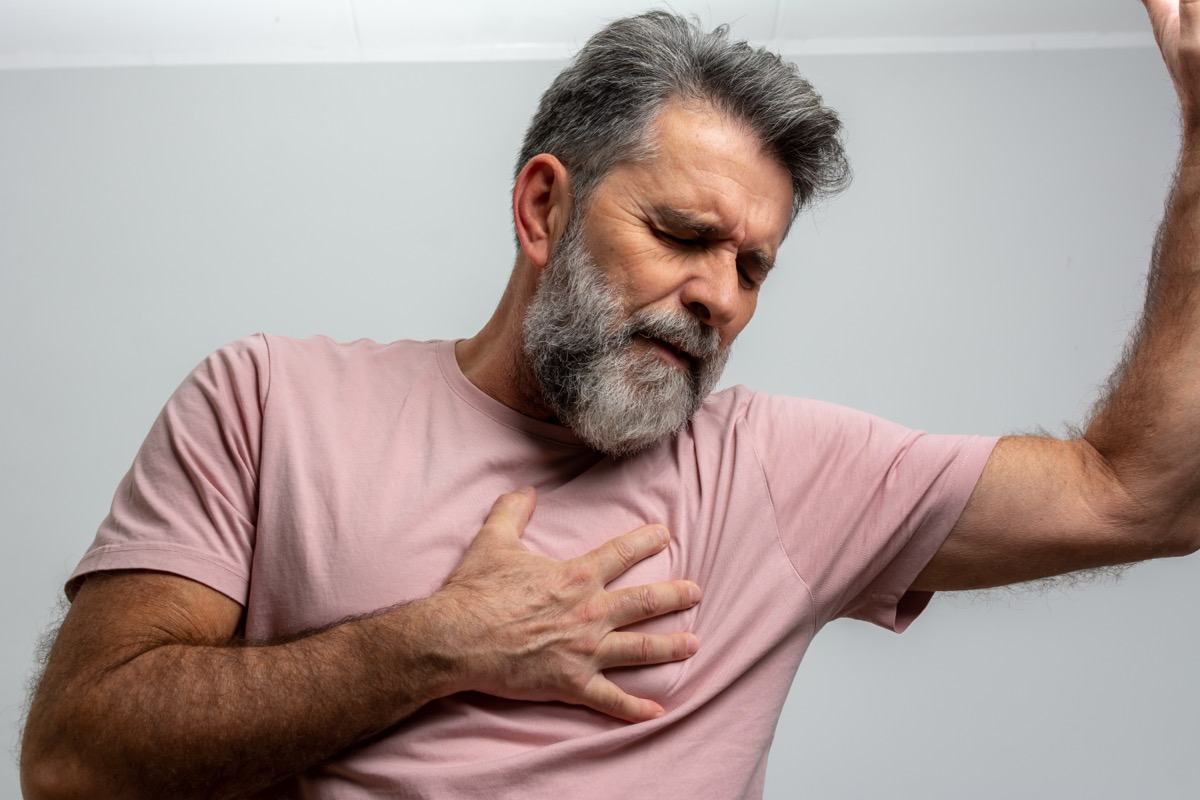
Sudden cardiac arrest is a life-threatening emergency that happens when your heart suddenly stops beating. As a result, the person becomes unconscious and breathing stops. Immediate treatment is required or the person will die. Survival is possible with swift action and medical care. Sudden cardiac arrest is a leading cause of death and "causes about 300,000 to 450,000 deaths in the United States each year," according to the National Heart, Blood and Lung Institute. "Cardiac arrest causes about half of the deaths linked with heart attack and stroke."
A common misconception about sudden cardiac risk is that it's basically a heart attack, but that isn't accurate. The Mayo Clinic says, "Sudden cardiac arrest isn't the same as a heart attack. A heart attack happens when blood flow to a part of the heart is blocked. Sudden cardiac arrest is not due to a blockage. However, a heart attack can cause a change in the heart's electrical activity that leads to sudden cardiac arrest."
Anyone is at risk, but there's ways to reduce the chance of sudden cardiac arrest by not smoking, not drinking excessive alcohol, maintaining a healthy weight and keeping annual doctor's visits and screenings. Eat This, Not That! Health spoke with cardiologists who explained what to know about sudden cardiac arrest and why every second counts during the medical emergency. As always, please consult your physician for medical advice.
What to Know About Sudden Cardiac Arrest
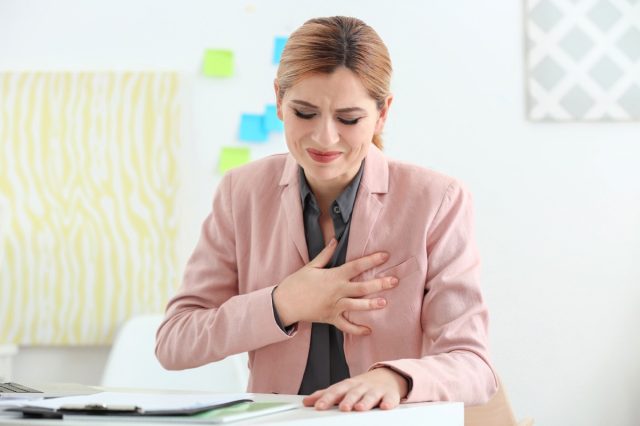
Dr. Eli Friedman, medical director of sports cardiology at Baptist Health Miami Cardiac & Vascular Institute says, "Sudden cardiac arrest can happen to anyone, anywhere, at any time. It is the process in which the heart either goes into a dangerous heart rhythm (ventricular tachycardia or ventricular fibrillation) or stops completely and is a medical emergency. Prompt intervention with cardiopulmonary resuscitation (CPR) and automated external defibrillator (AED) within 3 minutes is critical for survival. Jayne Morgan, M.D. Cardiologist and the Clinical Director of the Covid Task Force at the Piedmont Hospital/Healthcare in Atlanta, GA adds, "Recreational drug use and inappropriate use of prescription drugs can lead to cardiac arrest. This is true even in previously healthy people."
Since many cases of sudden cardiac arrest happen in public places, automated external defibrillators (AEDs) have been placed in areas like stadiums, bus, train stations, schools and offices, which make it possible for people to assist until first responders arrive. The National Heart, Blood and Lung Institute says, "When a person has a cardiac arrest, bystanders can call 9-1-1, provide CPR, and use an AED. A person has a better chance of surviving when first responders arrive quickly, so calling 9-1-1 first is very important. Everyone has a role in recognizing the signs of cardiac arrest and taking action to save lives.
–Know where to find AEDs. AEDs are in many public places, including offices, schools, shopping malls, grocery stores, airports, event venues, and gyms. Check to see whether your office or school has an AED.
–Learn how to use an AED. AEDs are not hard to use, but training is very helpful. AED training is often provided along with CPR training. Many major health organizations offer classes. Some training is available online. Find a course near you.
–Take action to increase public access to AEDs. AEDs save lives. You can suggest installing AEDs in the places people gather and work in your community and beyond. Be alert when you travel, too, as AEDs are also important on ships, trains, and aircraft, where emergency help may not be available."
Why Sudden Cardiac Arrest Happens
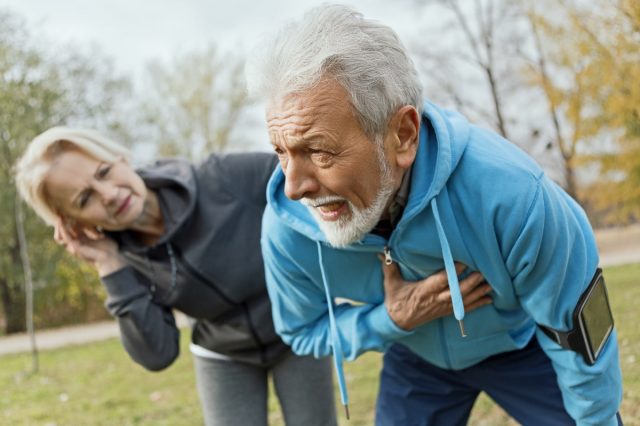
Dr. Morgan explains, "Sudden cardiac arrest is a malfunction of the electrical system of the heart. There can be several causes such as a heart attack (blood flow is blocked to the heart), scar tissue, cardiomyopathy (an enlarged or thickened heart), significant changes in your body's electrolytes such as potassium and magnesium, and Commotio Cordis (from a blow to the chest wall at a specific angle and timing of the cardiac cycle)."
Dr. Friedman says, "Many different things can cause this. Pre-existing known or unknown heart disease, aortic dissections, pulmonary emboli, and electrolyte abnormalities are just a few examples. Ultimately, we all die from cardiac arrest, i.e., the heart stops."
John Hopkins Medicine says, "Cardiac arrest can be caused by a heart condition, or it can occur unexpectedly. However, there are three main causes of cardiac arrest:
Arrhythmia and ventricular fibrillation: Arrhythmia occurs when electrical signals in the heart are the problem leading to an abnormal heartbeat. Ventricular fibrillation is a type of arrhythmia and is the most common cause of cardiac arrest. Ventricular fibrillation is a rapid heartbeat in the heart's ventricle, which causes the heart to tremble instead of normally pumping blood.
Enlarged heart (cardiomyopathy): The heart muscle dilates or thickens, leading to abnormal contractions of the heart.
Coronary artery disease: This type of heart disease occurs when the coronary arteries are narrowed and thickened by blockages of plaque, which restricts the flow of blood to the heart. If left untreated, coronary artery disease can lead to heart failure or arrhythmias, which both can lead to cardiac arrest.
Every Second Counts
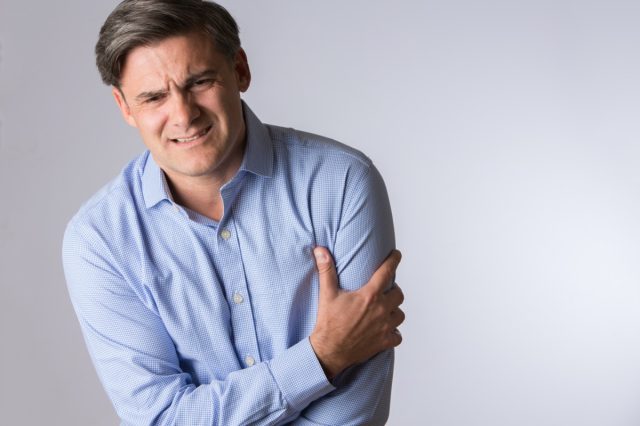
Dr. Morgan tells us, "Cardiac arrest is the sudden loss of the function of heart, breathing, and then consciousness usually within 6 seconds. Immediate CPR is critical in determining the outcome. As cardiac arrest can occur anywhere, bystander readiness (or lack thereof) makes the difference between life and death."
Dr. Friedman explains, "The chances for survival are dependent on the etiology of the cardiac arrest. Chances improve tremendously if the event is recognized and responded to within the first three minutes with prompt CPR and AED application. The key to survival is to recognize that someone is in cardiac arrest, respond with calling 911 and grabbing the closest AED if available and starting CPR with application of the AED. It is imperative to continue CPR and follow instructions from the AED until emergency medical providers arrive."
Survivors Can Experience Long-Term Health Issues After Cardiac Arrest
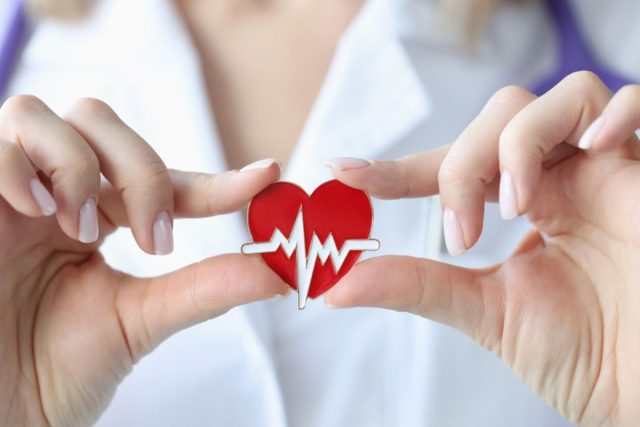
According to Dr. Morgan, "The most consequential is loss of a completely intact neurological system. Without this, someone can have many deficits of function including difficulty with speech, eating, getting dressed, memory, walking, etc." Dr. Friedman says, "There are many. Mental health is a big one. Broken ribs are quite common from the CPR and then the sequelae of the event that caused the cardiac arrest."
NYC Langone Health says, "Most people who experience cardiac arrest do not survive. Among those who do, there is risk of neurologic dysfunction, brain injury, disorders of consciousness, neurocognitive deficits, changes in quality of life, as well as physical and psychological well being." In addition, NYC Langone Health states, "Many people who are successfully resuscitated have significant long term issues including brain injury, functional deficits, and psychological and cognitive deficits, such as post-traumatic stress disorder (PTSD), anxiety, depression, and memory loss."
Warning Signs of Cardiac Arrest
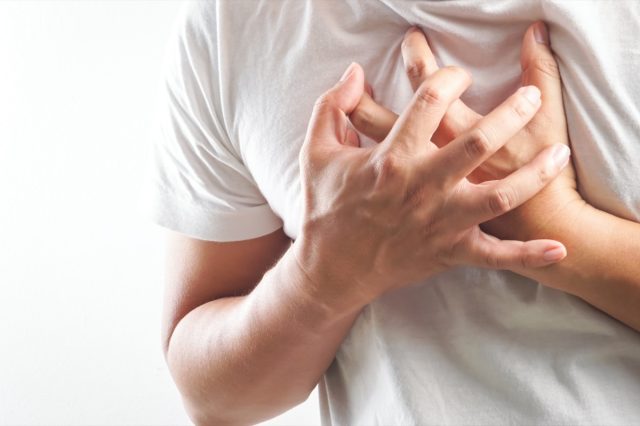
The Cleveland Clinic says, "In more than half of the cases, sudden cardiac arrest happens without prior symptoms.
Sudden cardiac arrest symptoms may include:
Fainting (losing consciousness).
Racing heartbeat.
Chest pain.
Dizziness.
Lightheadedness.
Shortness of breath.
Feeling sick to your stomach and throwing up.
This means that a potentially dangerous heart rhythm problem has started, which is why these are also sudden cardiac death symptoms."
The Mayo Clinic says, "Symptoms of sudden cardiac arrest are immediate and severe and include:
Sudden collapse.
No pulse.
No breathing.
Loss of consciousness.
Sometimes other symptoms occur before sudden cardiac arrest. These might include:
Chest discomfort.
Shortness of breath.
Weakness.
Fast-beating, fluttering or pounding heart called palpitations.




